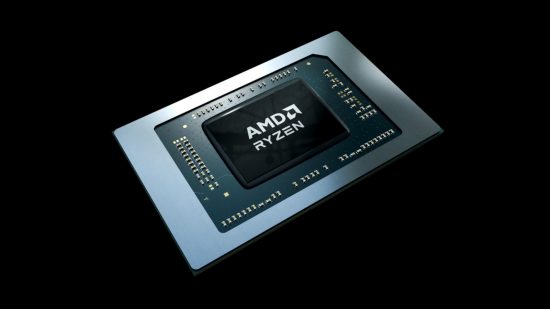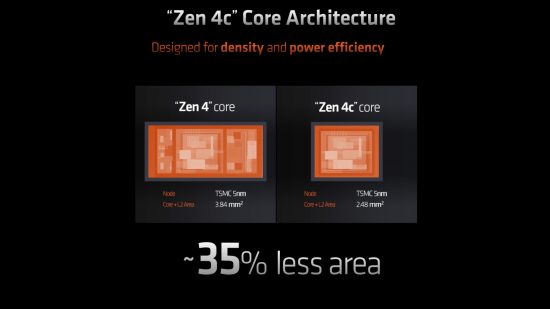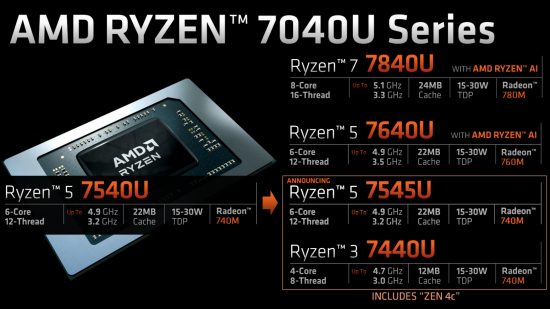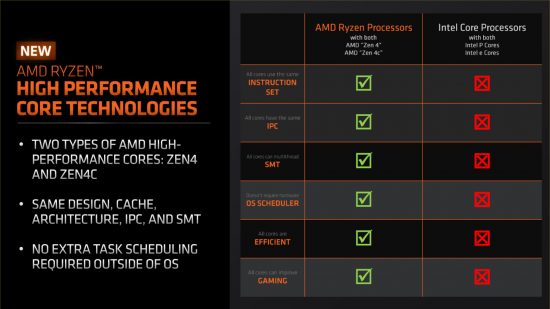AMD has unveiled details about its new laptop processors, now featuring ‘Zen 4c‘ cores. The company is keen to stress that this is not its response to the hybrid designs of recent Intel Core CPUs, much as there are some similarities. Regardless, the perks of Zen 4c could have equally tangible benefits for the desktop market, as it should the portable PC space.
Even without big and little cores at their disposal, AMD processors have found other ways to snatch the title of best CPU for gaming away from their Intel competitors. Namely, through technologies like 3D V-Cache, which is what helps give the Ryzen 7800X3D such a leg up versus higher core count chips. Now, Zen 4c cores could further strengthen their abilities.
Zen 4c cores are built using the same TSMC 5nm process but occupy a smaller die space; 2.48mm2 versus the 3.84mm2 of typical Zen 4 cores. This design is in service of providing greater power efficiency, particularly in scenarios that require less than 20W. Even when power draw is higher, AMD says that users should notice little if any performance difference.
Currently, the only processors scheduled to receive Zen 4c cores are the Ryzen 5 7545U (replacing the existing Ryzen 5 7540U) and the Ryzen 3 7440U. The new Ryzen 5 CPU will pack two Zen 4 cores and four Zen 4c cores, versus the older’s six Zen 4 cores. Save for this change, they remain otherwise identical.
“Just so there’s no confusion, this is not our E-core,” says Donny Woligroski, senior processor technical marketing manager at AMD. “Zen 4c uses the exact same instruction set as Zen 4, has the exact same IPC, and the same ability to use SMT.”
To further distinguish Zen 4c cores, and cheekily take a shot at Intel E-Cores, Woligroski continues by saying “all Zen 4 and 4c cores are efficient and useful for gaming.”
Interestingly, Woligroski also states that “this isn’t the only technology we’re exploring. We’re looking down a lot of different paths, on different ways to exercise our portfolio where it makes sense for consumers.” This could indicate that Zen 4c cores could find their way to desktop processors, particularly on the lower-end. Time will, of course, tell.
How do you feel about AMD Zen 4c cores? Let us know your thoughts on the Custom PC Facebook page, via Twitter, or join our Custom PC and Gaming Setup Facebook group and tap into the knowledge of our 390,000+ members.



